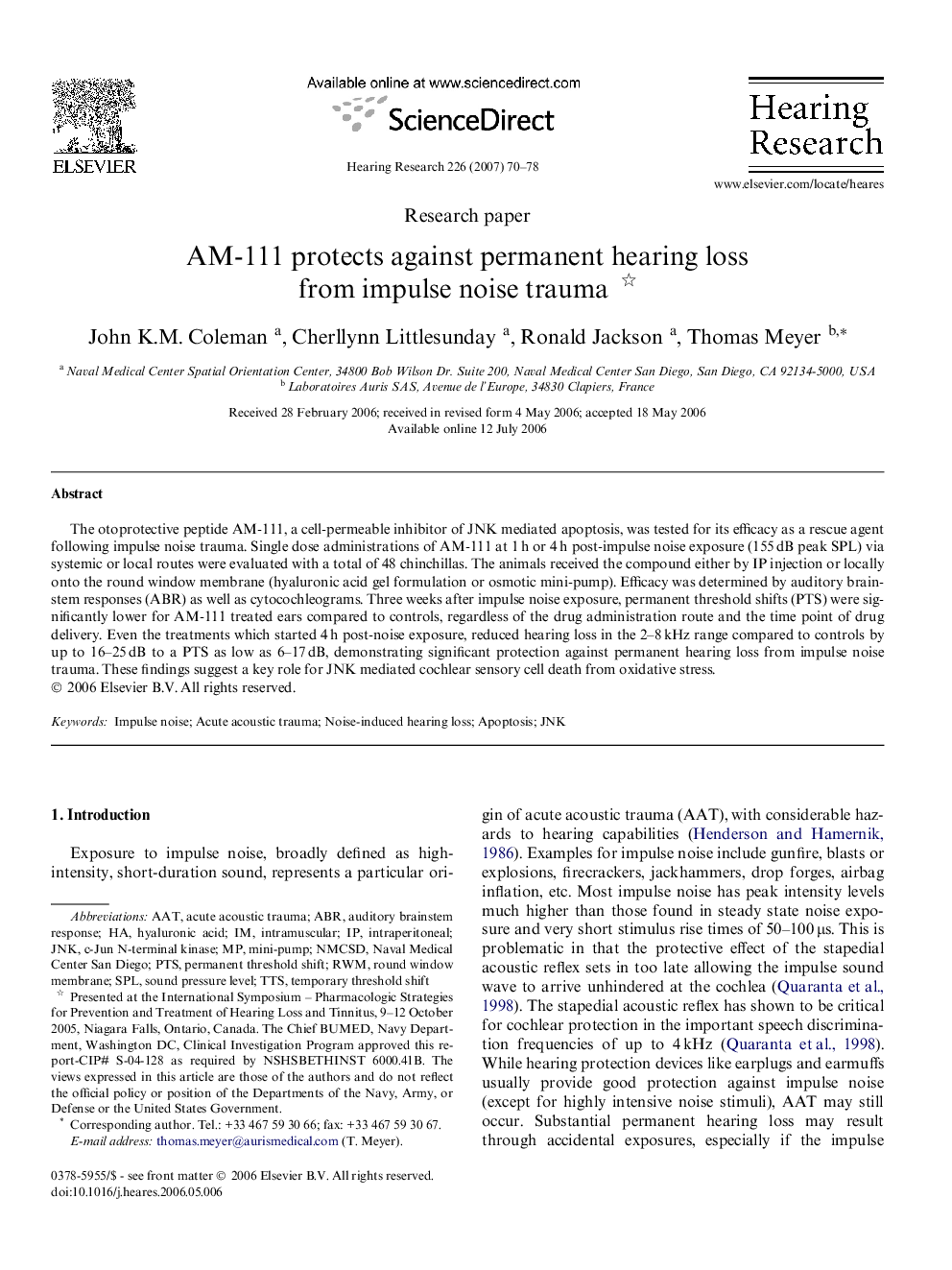| Article ID | Journal | Published Year | Pages | File Type |
|---|---|---|---|---|
| 4356321 | Hearing Research | 2007 | 9 Pages |
The otoprotective peptide AM-111, a cell-permeable inhibitor of JNK mediated apoptosis, was tested for its efficacy as a rescue agent following impulse noise trauma. Single dose administrations of AM-111 at 1 h or 4 h post-impulse noise exposure (155 dB peak SPL) via systemic or local routes were evaluated with a total of 48 chinchillas. The animals received the compound either by IP injection or locally onto the round window membrane (hyaluronic acid gel formulation or osmotic mini-pump). Efficacy was determined by auditory brainstem responses (ABR) as well as cytocochleograms. Three weeks after impulse noise exposure, permanent threshold shifts (PTS) were significantly lower for AM-111 treated ears compared to controls, regardless of the drug administration route and the time point of drug delivery. Even the treatments which started 4 h post-noise exposure, reduced hearing loss in the 2–8 kHz range compared to controls by up to 16–25 dB to a PTS as low as 6–17 dB, demonstrating significant protection against permanent hearing loss from impulse noise trauma. These findings suggest a key role for JNK mediated cochlear sensory cell death from oxidative stress.
